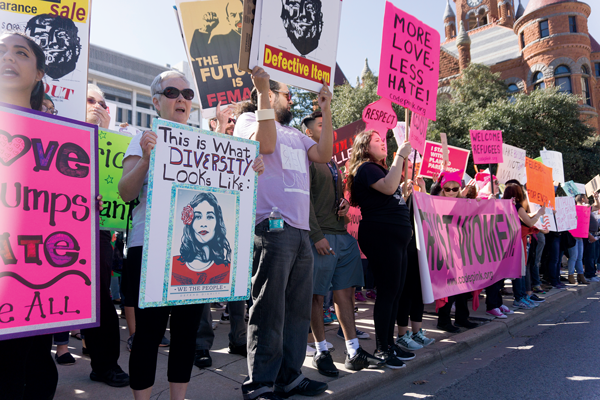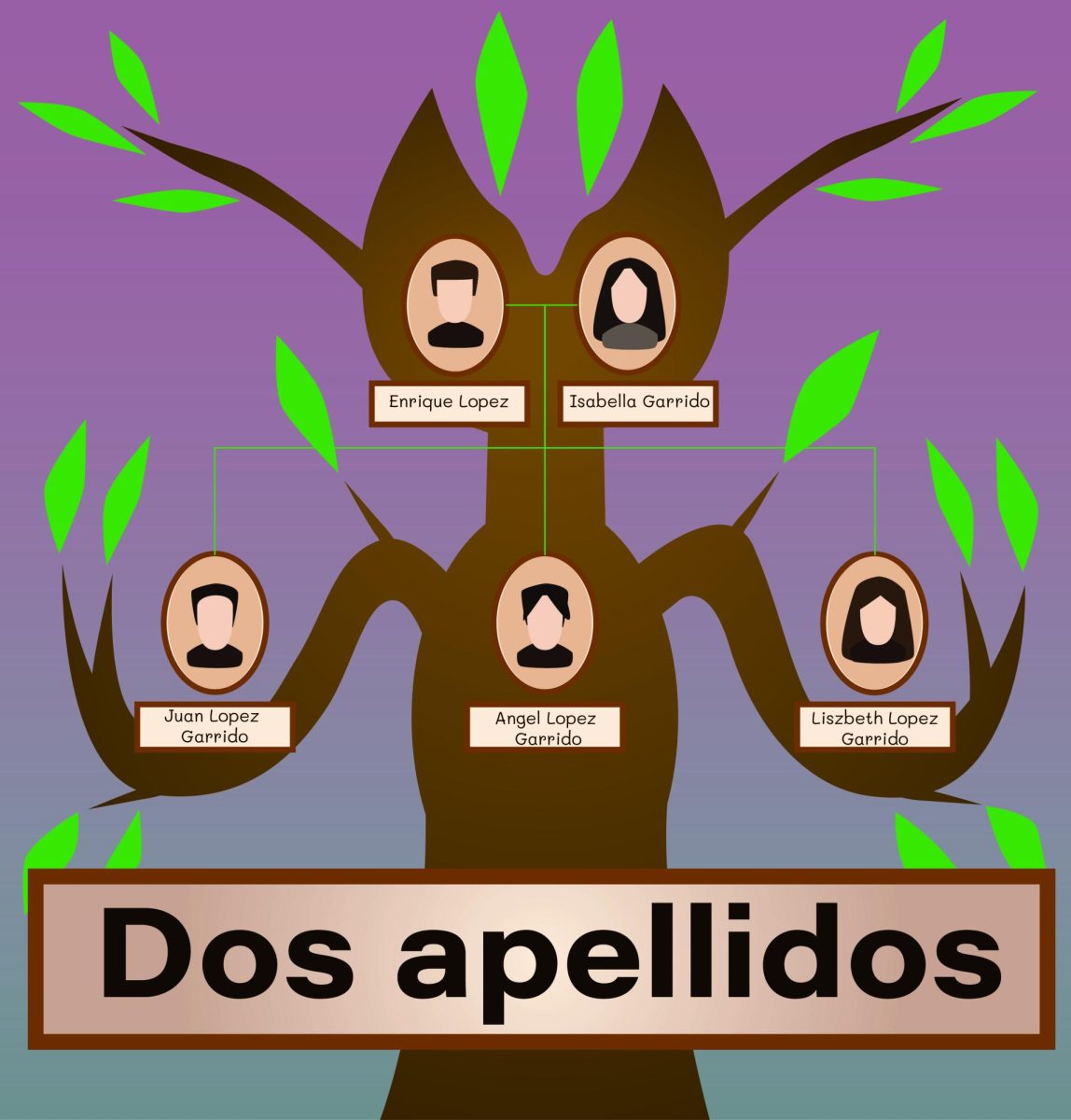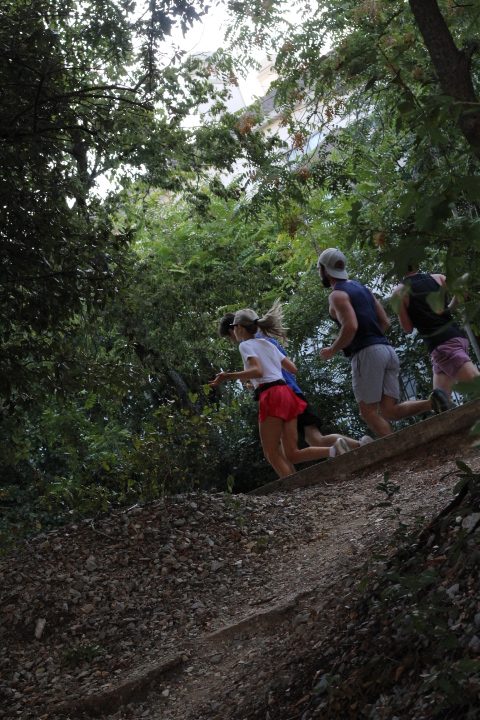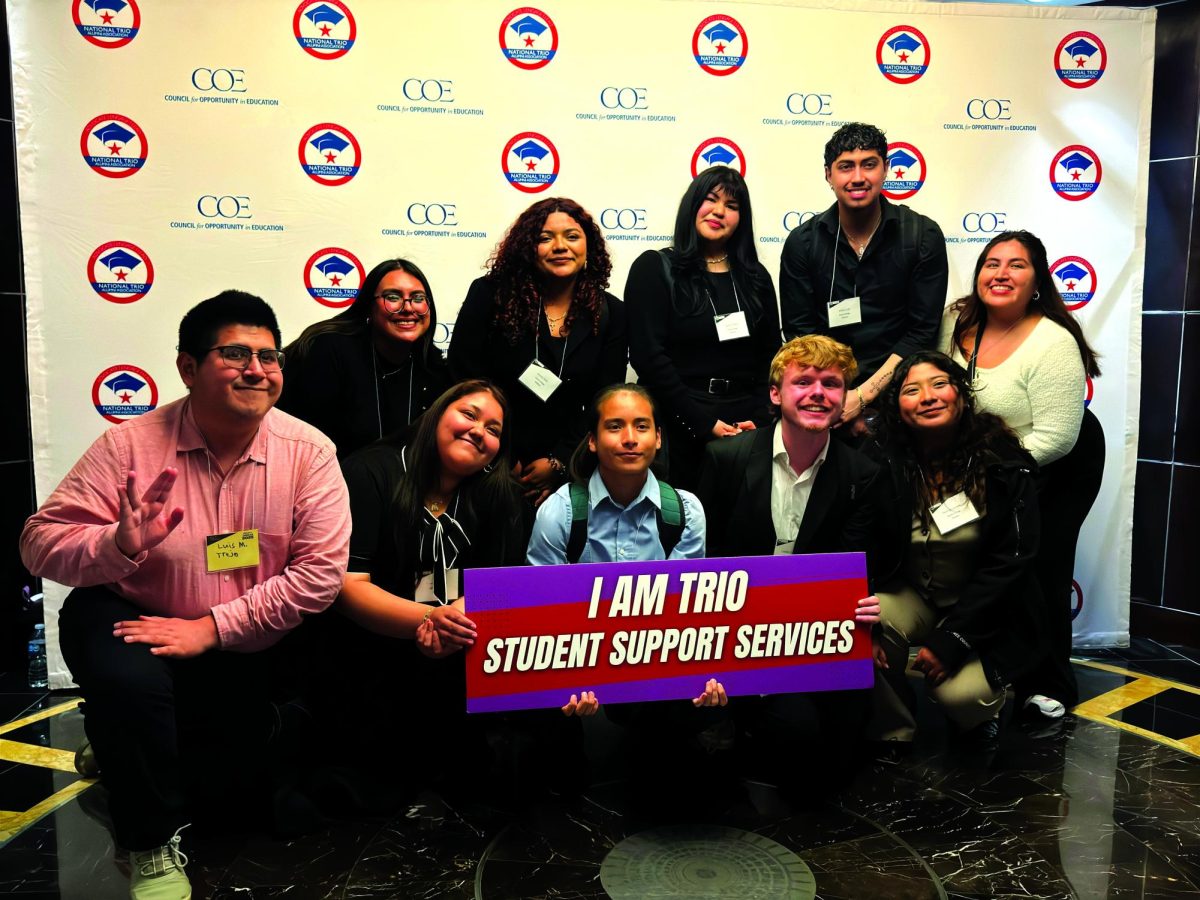By JON-MARK TAMEZ
@TheEtCetera
A “free speech area” is available on campus for rallies and protests, but despite the contentious political climate, no groups have used it.
Accounting major Diego Seguinot said he believes students aren’t as active as they could be because of disinterest or a fear of backlash.
“This last election had a lot of emotion, a lot of opinions going against each other,” Seguinot said. “What happens is that a lot of people were afraid to say, ‘Hey, I support Trump’ or ‘Hey, I support Hillary’ because of the fear that they would be judged.
“I know that there is a part of the campus that didn’t care. In many ways, it’s a little bit of both.”
Students who want to use the free speech area in the Lower Courtyard for a gathering or protest must register with the Office of Student Engagement and Retention at least 24 hours in advance.
The space can only be used during regular business hours.
Although students do not have to get approval from Eastfield administrators about the content of their events, they can be shut down if they become violent or disruptive to campus operations.
The space is not often reserved, and most gatherings are entertainment sponsored by the college.
Political gatherings have been rare.
Mike Walker, dean of Social Sciences, said the last major protest he remembers was 10 years ago, when the former college president removed government Professor Stacey Jurhree from his classes.
“Students and faculty gathered in the Lower Courtyard and protested,” Walker said. “Obviously, Stacey is still here today, so it worked.”
[READ MORE: Chinese automotive instructors visit Eastfield]
Free speech areas are common on college campuses. Six student groups on different colleges have filed lawsuits against colleges, claiming that limiting them to free speech zones violates their First Amendment rights. Five of those cases have been settled out of court, according the Student Press Law Center.
A designated free speech zone limits students’ ability to be active in political demonstrations, government professor Cindy Castaneda said.
“If administrators wanted to really minimize the social impact, they could say, ‘Yes, of course you can have a protest. It can be at the baseball field between the hours of 7 a.m. and 9 p.m.,’ ” she said. “You can really sideline the student group by being restrictive about time, place and manner.”
Education major Sarah Frichette hopes that the free speech area can ensure orderly and peaceful demonstrations.
“Everyone is worried about what the other is going to say after they have been politically active, afraid they would be seen in another light and people wouldn’t come up to them and talk to them,” she said. “I think a free speech zone is really good, I think it would really help students talk about issues on campus.”
Computer science major Blake Slade said protected speech should not be kept to a single area.
“We have our First Amendment,” he said. “It guarantees our right to speech at any time. I think it’s good they are giving us an area like that to express ourselves, but I don’t think we should be limited to that zone. It should be the entire campus or none of the campus.”
Education major Maycee Kabanek believes the entire college should be a free speech zone.
“I think it should be anywhere on campus, and I think it should be free and open,” Kabanek said. “If you want to be able to express your opinion, you have to accept everyone else’s.”
Eastfield could propose a compromise, such as different zones and areas across campus instead of a singular area, Castaneda said.
“If anything, I think it would be more reasonable to have different zones that students can chose from because it might be more appropriate to choose one place more than another based on time of year or even the issues,” she said.
[READ MORE: STEMinar highlights demand for video game designers]








